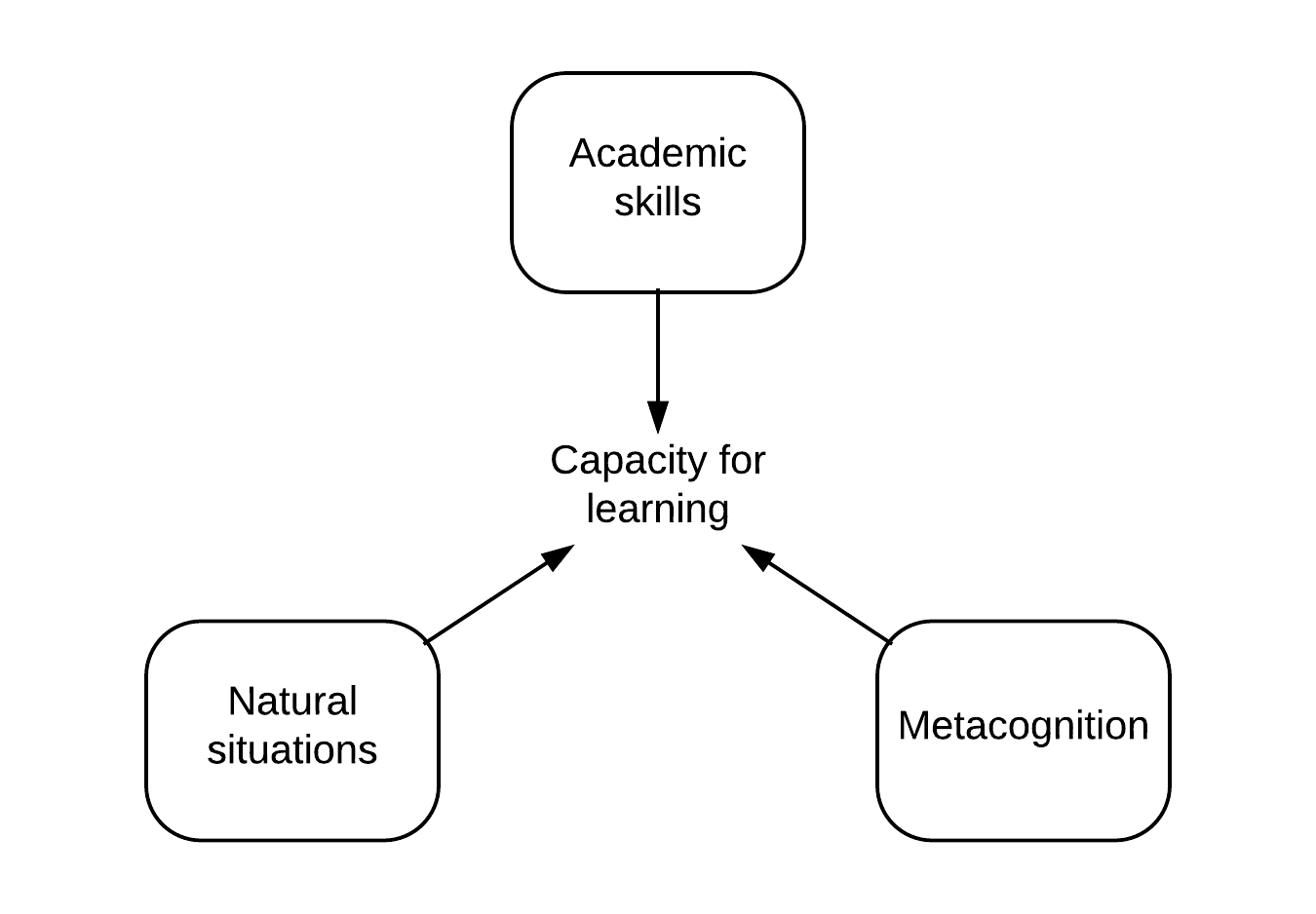Every day, we read and hear about the changing nature of work. “The job that existed before no longer exist” and “the jobs that our students will have do not exist yet” are themes we encounter in the business press, the education press, and in the current events press. We could debate the reality of this rhetoric and we could question the degree to which these have been realized, but I am of the opinion that the future is sure to be uncertain for individuals of not for society. I am also of the opinion that the only way to successfully navigate an uncertain future is to be prepared to learn.
In my thinking, the human capacity to learn is similar to the biological capacity to adapt. Through learning, humans are able to react to economic, political, and cultural changes in their environment. Schools have the primary responsibility, in my opinion, to be physical places and online spaces where students develop the capacity to learn. The capacity to learn arises in schools and classrooms in which three ingredients mix:

Academic skills are the traditional “things” graduates can do such as read, write, and do math. Of course, the collection of “things” in this list is becoming longer and more sophisticated, largely because of technology. In the age of “anyone can post anything,” individuals have greater responsibility to ensure the information they consume (and create) is accurate. In the age of cheap computing, we have the responsibility to know how to choose and use the devices that meet our needs.
Natural situations are learning environments that reflect the complexities of the real-world. There are many names applied to classrooms and problems and pedagogies that do bring complex problems into the classroom rather than stripping them of their complicating factors. There are several common elements of these learning environments, but the one defining characteristic is the nature of the products. If students create something that professionals working in the field would recognize and value, then students are working in natural situations.
Metacognition is the working of learning what you know. Those who are metacognitive understand who they have learned, they can apply their learning in different situations, they can identify gaps in their knowledge, and they can fill in those gaps.